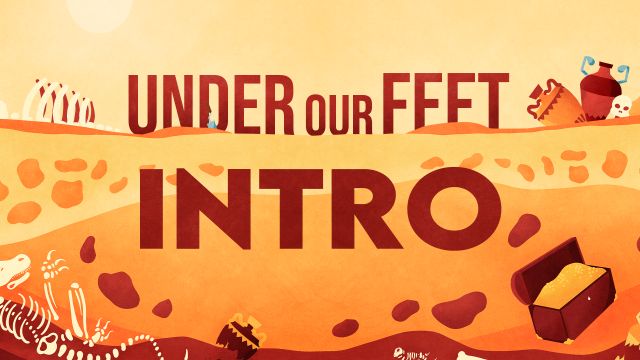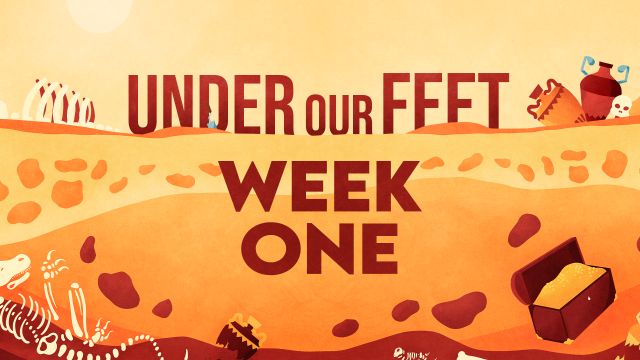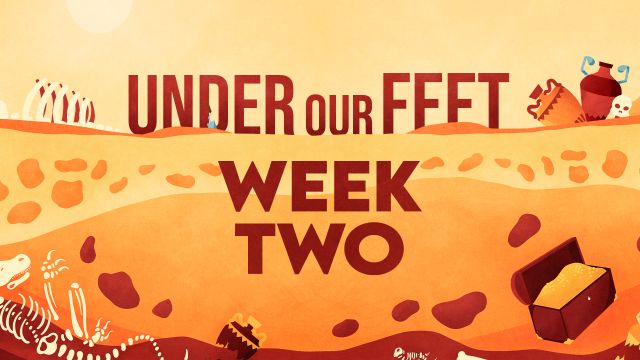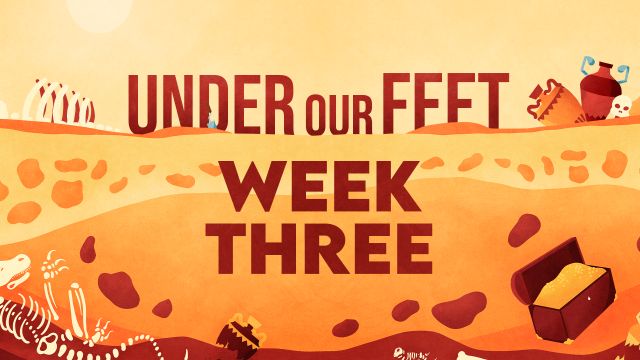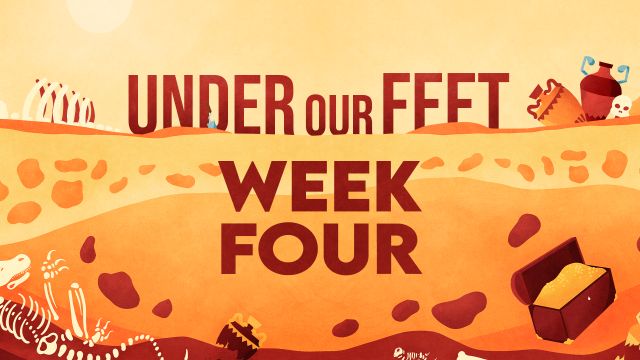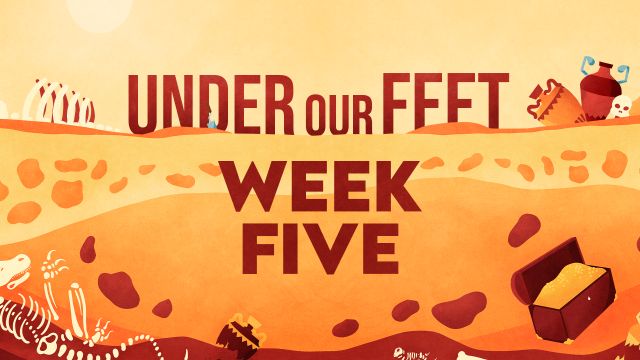Under Our Feet - Connect Groups
Introduction
Introduction
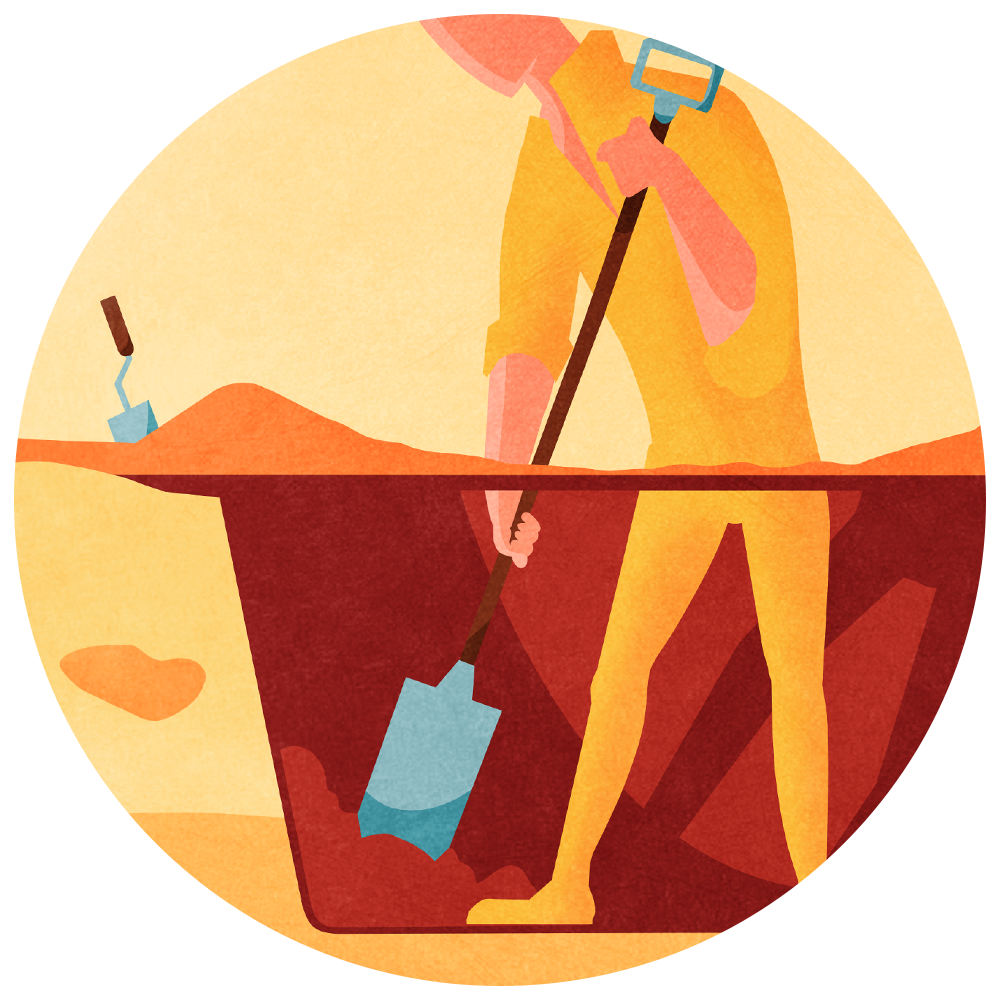
Under our soles are the stories of the souls that have lived here before us. The past doesn’t just live in books or museums, it is literally under our feet... We pray and invite God to travel with us as we consider our history and heritage — where we have come from and where we are going.
Where have you and your shoes been this year? What surfaces have you walked over? What communities have you walked through? Where have you stumbled, where have you leapt? Where are you heading? What are you leaving behind? What are you stepping into...?
Find how to get involved: Connect group Blog
Week One
Part 1: Under our toes
Conversation starter
 We begin our new theme by thinking about the tactile appeal of solid ground under our feet.
We begin our new theme by thinking about the tactile appeal of solid ground under our feet.
What’s your favourite kind of landscape to be in? Do you like to be on the beach, in the forest, up a mountain, or navigating the cut and thrust of the city centre?
And do you think we pray differently (or about different things) when we are in different environments?
Read Song of Solomon 2: 8-13
This passage about the coming of spring after winter is an interesting one to consider as we in the Northern hemisphere move into autumn and anticipate winter. With modern heating and air conditioning and with seasonal produce shipped all over the world regardless of the season it can be easy to become detached from the rhythm of a year.
Are we ‘in tune’ enough with the passing of seasons in God’s created world? It may seem to suit us humans to create an artificial temperate zone 365 days a year but it might not always be best for the planet. How can we look after the vulnerable, stay comfortable — and yet also pay attention to the natural rhythms of life that are important for creation?
Read Psalm 15
A lot of our convenience and comfort comes at a cost to the land and other people. A cost sadly that we sometimes ignore.
Can you think of examples of when we take ‘a bribe against the innocent’ in our everyday lives? Examples of times when we have looked the other way while others have had to pay the price?
How can we work together to stop taking land and people for granted?
Read James 1: 17-27
Think about where you will be on Monday morning at 10am.
In your mind draw a circle around where your feet will be at that moment and inspect that little plot of ground. How are you caring for that space? How are you responsible for it? What are you weeding out? What are you helping to grow? And in what ways are you practicing the true religion of caring for the vulnerable and distressed who pass through it?
Week Two
Part 2: Under our soles
Conversation starter
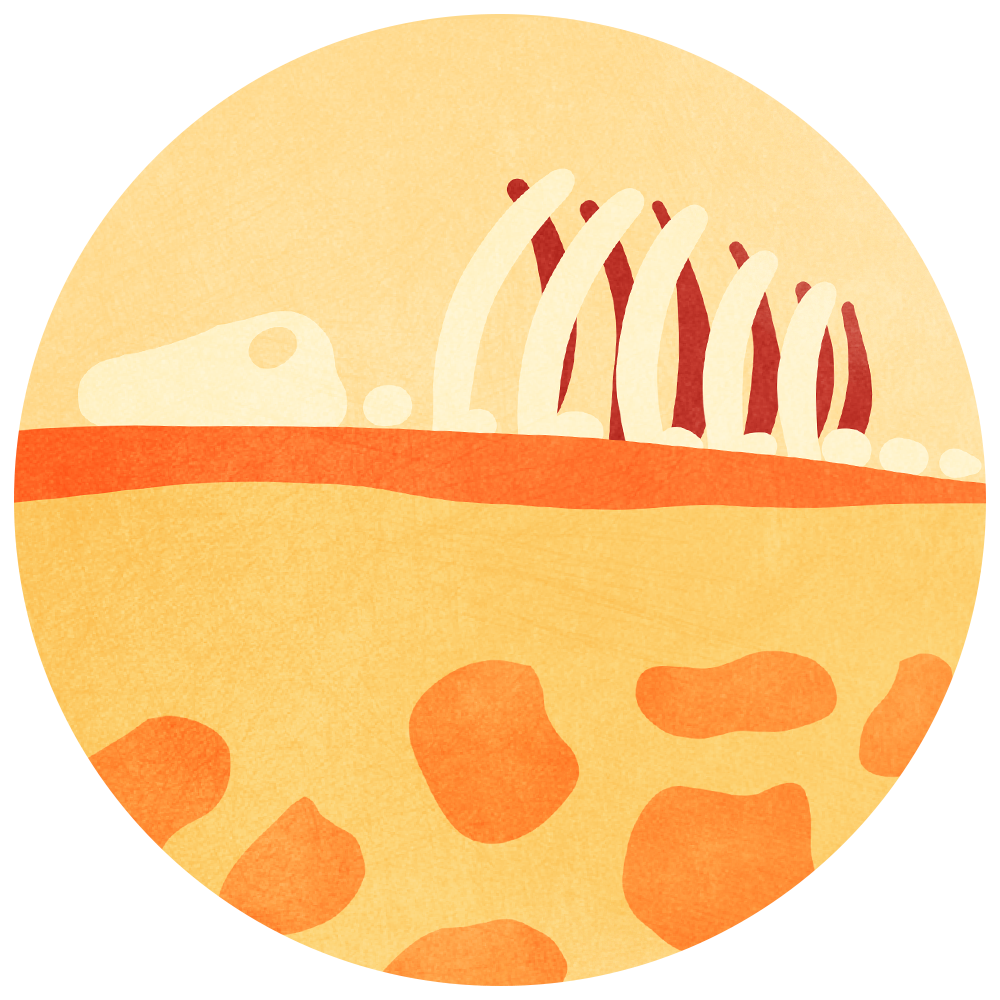 How much do you know about the history of where you live? And what everyday experiences do you share with those who have walked the same ground hundreds or thousands of years ago? Are there certain landmarks or significant places of meaning that have remained the same for generations?
How much do you know about the history of where you live? And what everyday experiences do you share with those who have walked the same ground hundreds or thousands of years ago? Are there certain landmarks or significant places of meaning that have remained the same for generations?
Read Proverbs 22: 1-2, 8-9, 22-23
This week as we think about history, let’s put our ears to the ground and listen to the heritage that is more precious than any inheritance of gold or silver that have been left behind by past generations....
What are the legacies of generosity and justice and goodness that you are thankful for — the people who have influenced your life?
Read Psalm 146
‘Princes’ ultimately return to the earth and their plans perish alongside them. When we walk through the present, we are also walking over history. With humility we turn our eyes to God and think about the eternal things that outlast our princely plans.
What are the lessons the church has learned from history? And what are the lessons we aren’t learning — but should be?
Read James 2: 1-7
When we study history, or tell stories about it, we tend to focus on the rich and powerful — those with the gold rings — at the expense of those in dirty clothes. Often we do so because there’s more written records available about them. But we miss so much human experience by neglecting to consider the lives of folk, the majority of us, who schlepped about in dirty clothes.
What do you think a history book of the last 2,000 years written by Jesus would be like? Who are the people he would choose to write about? What would be the most significant events?
Week Three
Part 3: Under our shoes
Conversation starter
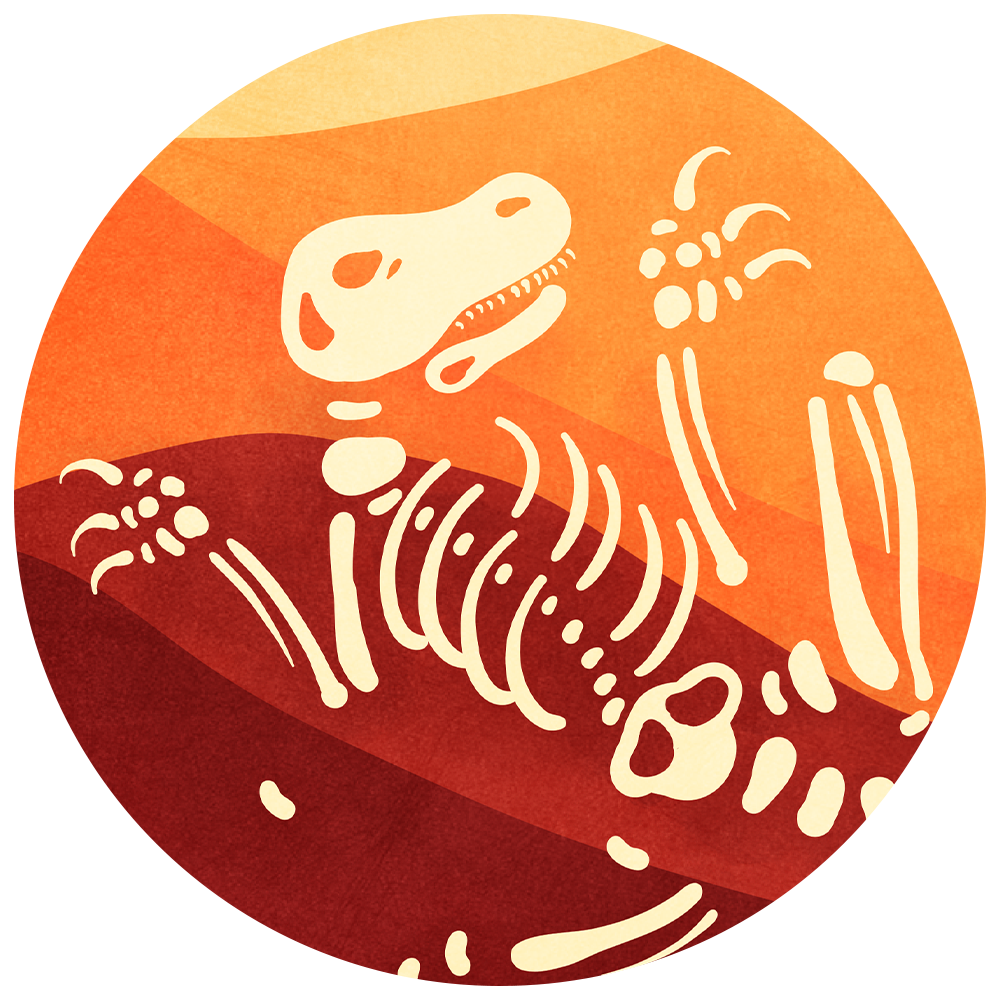 Where have you and your shoes been this last year or so? Chances are they have not roamed as far or as wide as they did in the previous year or so with our slippers having seen more active duty!
Where have you and your shoes been this last year or so? Chances are they have not roamed as far or as wide as they did in the previous year or so with our slippers having seen more active duty!
What communities have you walked through? Where have you stumbled, where have you leapt? Where are you heading? What are you leaving behind? What are you stepping into?
Read Psalm 116: 1-9
What does it mean to walk before the Lord (verse 9)?
Read James 3: 1-12
A small change in the angle of a rudder can make an enormous difference over time as a boat travels through water. When hiking a slight shift in compass coordinates can lead to us travelling way off course. In the same way sometimes the little things we say to one another, the small miscalculations we make, that seem insignificant at the time, can take us far from where we set out to be.
When our words have taken us far from where we want to be — when we are well truly lost — how can we use our words to get back on track, to rechart a course and get back to where we want to be?
Read Mark 8: 34-38
We end by unpacking this haunting phrase about taking up your cross. If picking up a cross is an uncomfortable image for us reading this now think how it must have felt for a people who lived in a community where crosses were an all too real threat of state sanctioned violence.
What do you think it means for us to today to take up our cross and follow Jesus?
Week Four
Part 4: Under our heels
Conversation starter
How’s your sense of direction? What do you do when you find yourself lost?
Read Psalm 98
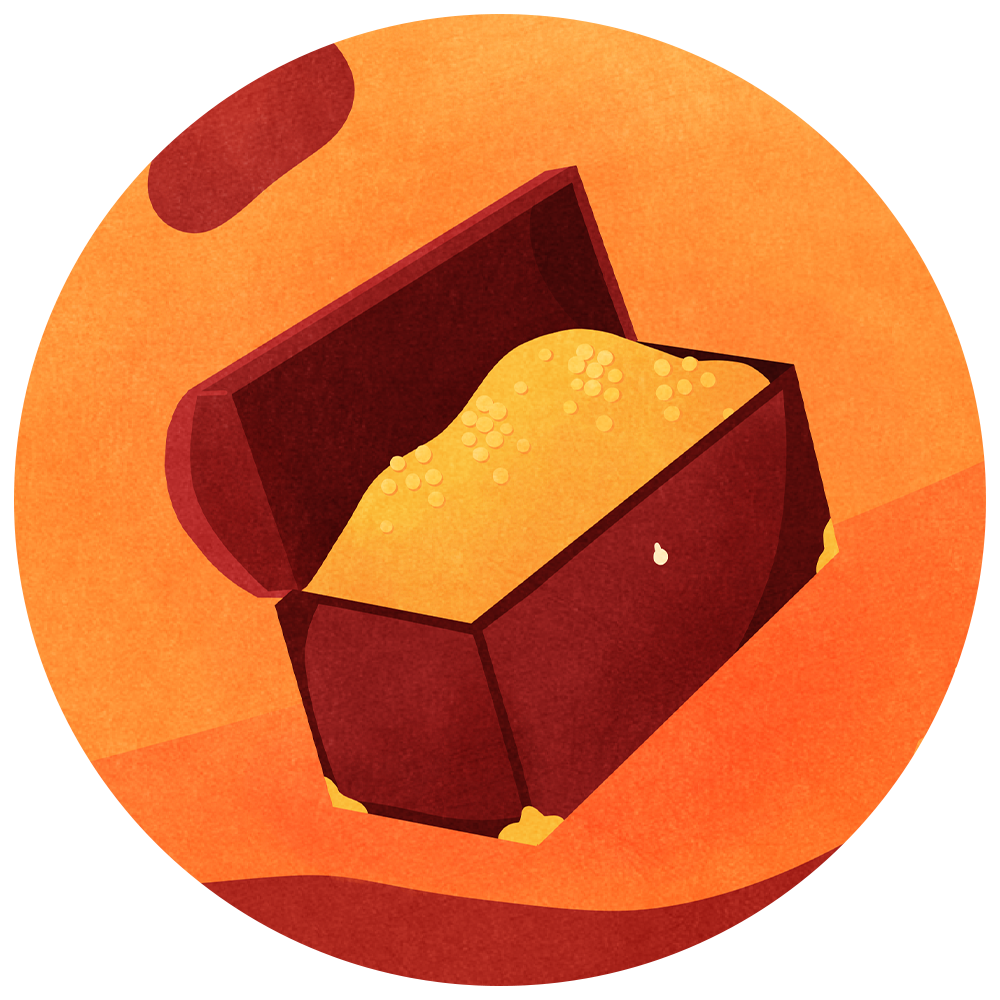
As we’re thinking about the land under our feet this month let’s think about different ways that the earth makes a joyful noise to the Lord.
Let’s throw our minds wide open and think what are the different sounds in creation that contribute an ongoing hymn of praise to God? When the natural world is singing to God what does it sound like?
Read Deuteronomy 32: 7-14
Where in our lives are we finding ‘honey in the rock’? Where have we found unexpected sweetness and goodness right under our nose?
Read Exodus 3: 1-6
Have you ever felt like you were standing on ‘holy ground’? What does the phrase ‘holy ground’ mean to you?
Week Five
Part 5: Under our feet
Conversation starter
Do you have a favourite tree? Perhaps a specific one from a garden or local park? Maybe it’s one from childhood? Or perhaps a favourite type of tree?
Read Psalm 1

What helps you to feel rooted, sustained and nourished — like a fruitful tree planted by streams of water — in your daily walk with God?
Read John 15: 1-5
In cooler climates vines are sometimes planted next to a greenhouse. A hole is then cut in the wall so that the stem can grow inside. That way the fruit can feel the benefit of the warmth inside but the roots can still get to the rain!
As we grow as disciples we perhaps benefit from this mixture of rain and shelter too. Sometimes we need comfort and nurturing and sometimes we need bracing refreshment. As we explore Jesus’s compelling metaphor of the vine we could imagine that his Father, the gardener, has planted us out in the open air but next to a greenhouse. As disciples what are the ways we are rooted in Jesus and putting ourselves out there in the world serving alongside him? Out on a limb and out in the cold, ready for the rain?
And in what ways are we taking shelter and time to be nurtured and grow in the warmth of God’s love and the community of one another?
Read Proverbs 16: 24
Honey is sustenance spun from flowers, pockets of beauty bursting into sweetness and nourishment. In our gracious words and actions we spin a honey that sustains one another.
Can we make plans to use gracious words in specific circumstances we are going to face in the week ahead so as to bring sweetness and healing?




